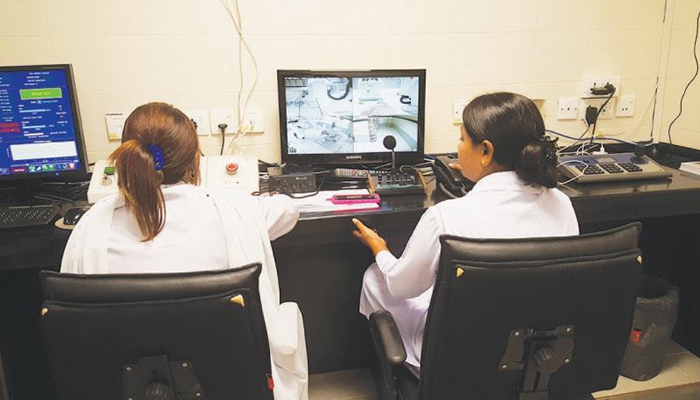Uterine cancer survivors more likely to have cardiovascular problems: study
May 15, 2018

Uterine cancer survivors are more likely to have cardiovascular problems, a recent study has suggested.
Researchers at the Oxford University Press USA identified 3,621 endometrial cancer survivors using the Utah Population Database. Diagnosis data was available for women aged 18 and over diagnosed with this cancer between 1997 and 2012 in Utah.
The results of the study published in the Journal of the National Cancer Institute indicated that approximately 25.7 per cent of cancer survivors were diagnosed with heart diseases five to ten years after cancer diagnosis.
Uterine cancer survivors were 47 per cent more likely to be diagnosed with a disease of the heart between one of five years after cancer diagnosis and 33% more likely to be diagnosed with a disease of the heart between five to ten years after the initial cancer diagnosis.
Researchers observed elevated risk during the one-to-five-year time period for peripheral and vascular atherosclerosis, hypotension, phlebitis, thrombophlebitis, thromboembolism, other circulatory diseases, and other diseases of the veins and lymphatics.
The researchers also found associations for hypotension, diseases of veins and lymphatics, and other diseases of veins and lymphatics.
Between one to five years after diagnosis, researchers observed increased cardiovascular risks among endometrial cancer survivors for phlebitis, thrombophlebitis and thromboembolism, lymphatic diseases, pulmonary heart disease and atrial fibrillation.
Some elevated risk persisted for cardiovascular diseases at five to ten years.
Compared to the patients who had surgery, those who additionally had radiation therapy and/or chemotherapy were at increased risk for heart and circulatory system disorders between one to five years after cancer diagnosis.
This study suggested that increased monitoring for cardiovascular diseases might be important for endometrial cancer patients for 10 years after cancer diagnosis.











